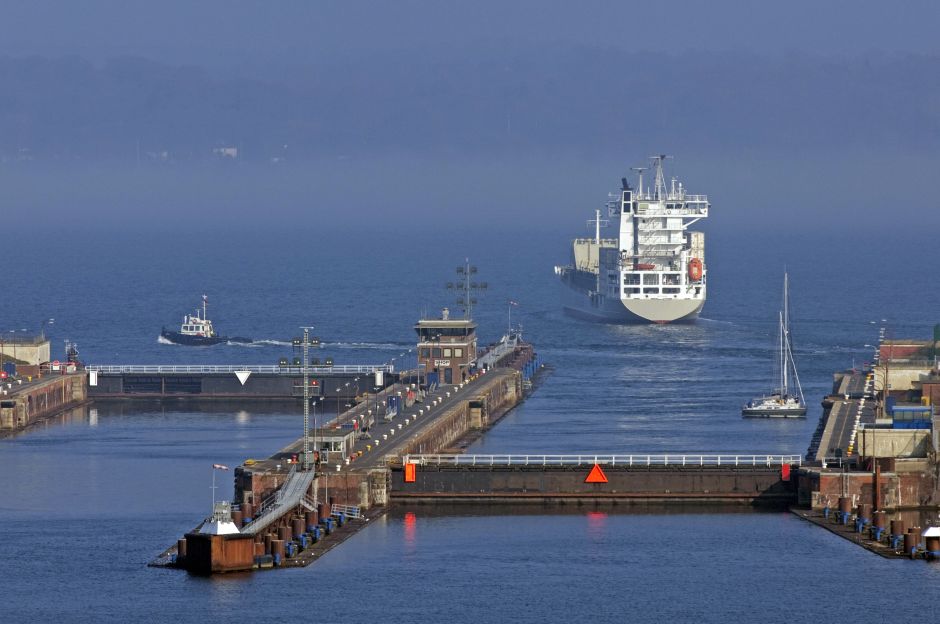Complexity and Ambivalence in Ship Safety Inspection: The View of Swedish Port State Control Officers

The first study ever made on port state control officers in Sweden will be the subject of the dissertation November 20 where Fredrik Hjorth, PhD student at the Maritime Academy at Linnaeus University, will defend his PhD thesis Complexity and Ambivalence in Ship Safety Inspection: The View of Swedish Port State Control Officers.
Port state control officers are important for the safety and security of the ship since the aim of their work is to ensure that vessels meet requirements of international conventions concerning for instance safety, pollution, and certifications of the crew. In the study, inspectors have answered questions about their own professional challenges, status and identity and the quality of Paris MoU inspection system and the Swedish inspection organization.
Why did you decide to do the study?
- The interest of making the study arose from my licentiate thesis, which was about safety culture onboard vessels in the Baltic Sea. The result of the study generated several questions. For instance, what made port state control officers successful in terms of performing their tasks? It was important to understand the inspectors own perceptions about their work. The study has therefore been conducted through interviews with control officers where they have been speaking about both negative and positive things about their work.
- This type of research is important since it puts focus on areas that are rarely thought of for a research project – people´s possibilities to work through the systems which affect safety, security and the environment, Fredrik Hjorth says.
What are your most important results?
- Expertise and integrity are keywords when it comes to inspectors own perceptions about what leads to success of their work.
- It is crucial for inspectors to not only focus on the check-list and believe that everything is okay. A professional assessment is for instance important in order to determine complicated cases. Proportional judgment is important and the right pre-conditions to do the job you are ought to do, Fredrik Hjorth says.
Did anything surprise you during or after the study was done?
- I was quite surprised how controlled Port State Control officers perceived that they are. I thought that inspectors would have more freedom in their work. There might be a risk when you control an area that you do not have complete knowledge about, that you only identify the things you expect to see. You do not see the things that fall outside the structures you are used to.
- When I started I thought there would be more conflicts between the different actors, but there are actually very few conflicts. The parties rather discuss with each other when disagreements occur, Fredrik Hjorth says.
Do you have any recommendations for the future based on your study?
- One recommendation is that it is important to create informal meeting places between different parts of the shipping sector where the crew, control officers etc. can meet. It is important to create understanding between the different actors, something that is missing today. The lack of understanding for each other’s roles are identified in the discussions that occur within both the Swedish Transport Agency and the classification societies.
- All rules lead to that people work through those rules in creative ways. Both inspectors and the crew use strategies to simplify their work despite the complicated system and rule of law.
- Some of the results can also be used for other sectors since control officers in different sectors have quit similar tasks. Even though each sector has certain things that differentiate them from one another, Fredrik Hjorth says
-
 DNV: Metanol är ett moget alternativt bränsle
DNV: Metanol är ett moget alternativt bränsle -
 Se Hållbar sjöfarts uppsamlingsheat
Se Hållbar sjöfarts uppsamlingsheat -
 NextWave – en podd som ska locka unga
NextWave – en podd som ska locka unga -
 Ny studie: Eldrivna pendelbåtar kan effektivisera Stockholms kollektivtrafik
Ny studie: Eldrivna pendelbåtar kan effektivisera Stockholms kollektivtrafik -
 Sjöfartens utsläpp ökar
Sjöfartens utsläpp ökar -
 Sociala relationer påverkar val av bränsle
Sociala relationer påverkar val av bränsle -
 Sjöfartens omställning kräver ”mjukare” påtryckningar
Sjöfartens omställning kräver ”mjukare” påtryckningar -
 Hon hade avtalad tid med Kapten ynkrygg
Hon hade avtalad tid med Kapten ynkrygg -
 Lighthouse omvärldsanalys 2025 – osäkerhet och tullar präglar sjöfarten
Lighthouse omvärldsanalys 2025 – osäkerhet och tullar präglar sjöfarten -
 Se seminariet Shipping in the Marine Environment
Se seminariet Shipping in the Marine Environment

